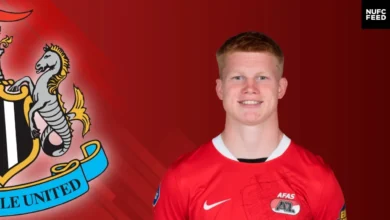Why Newcastle United Remains Unfazed by Proposal Targeting PIF Ownership
Proposed Amendment Introduced to Football Governance Bill at Committee Stage

The ownership of Newcastle United by the Saudi Arabian Public Investment Fund (PIF) has once again sparked debate.
Since the PIF’s acquisition of the Magpies in October 2021, their influence has been a major talking point in English football.
The takeover initially prompted Premier League clubs to vote on changing fair market value rules, fearing Newcastle’s owners could leverage their Middle Eastern business interests to boost the club’s commercial revenue.
However, three years later, the PIF remains subject to the same restrictions as when they arrived.
Progress in closing the gap on the established “big six” has been slow, despite Newcastle securing Champions League qualification in their first season under new ownership.
The spotlight this week shifted to the Football Governance Bill, which aims to introduce an independent regulator for English football.
Reports revealed that an amendment to the bill seeks to ban state ownership of football clubs.
Labour peer Lord Bassam of Brighton proposed legislation that would prevent state-controlled clubs from obtaining an operating licence unless they can prove a clear separation between the state and the entity owning the club.
Concerns center on the links between the PIF, Saudi Arabia’s sovereign wealth fund, and the Saudi government.
Mohammed bin Salman, the de facto ruler of Saudi Arabia, serves as chairman of the PIF.
While the Premier League deemed the PIF and Saudi government to operate independently, critics argue the connection is too close for comfort.
This proposed amendment could also impact Manchester City.
The club’s parent company, City Football Group (CFG), has Sheikh Mansour bin Zayed Al-Nahyan, deputy prime minister and vice-president of the United Arab Emirates, as its principal owner.
Sheikh Mansour acquired Manchester City in 2008, and his prominent political role could place the club under scrutiny if the amendment is passed.
Under Lord Bassam’s proposal, the legislation states:
“No state-controlled club may be granted an operating licence, and any affected club must satisfy the IFR [independent football regulator] that they have divested themselves of their state-control before applying for an operating licence.
“A state-controlled club is one which is wholly or majority-owned by individual(s) or entities controlled by individual(s) who are deemed by the IFR or the secretary of state to be under the influence of any state actor, including but not limited to:
members of any government or their immediate family, a head of state or their immediate family, diplomats, lobbyists, or other state representatives, or their immediate family, and sovereign wealth funds.”
If enacted, this legislation would have profound implications for Newcastle United and Manchester City, forcing them to demonstrate independence from state actors or divest ownership.
It reflects growing concerns about the influence of sovereign wealth funds in football and the need to maintain integrity wi
thin the sport.



